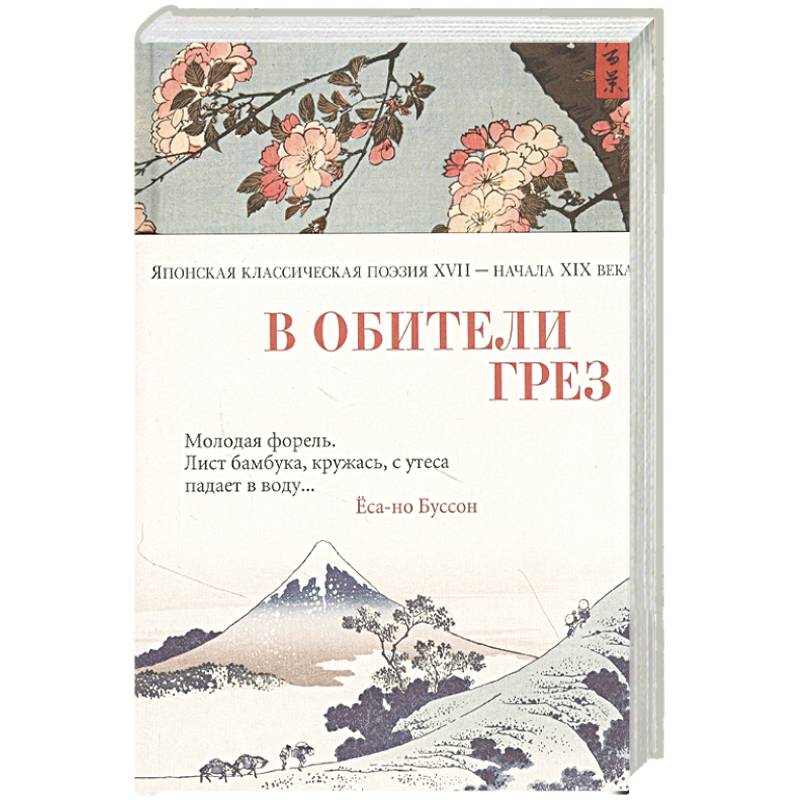In the monastery of dreams. Japanese classical poetry of the XVII-early XIX century
Please sign in so that we can notify you about a reply
The anthology prepared by the famous orientalist and translator of Japanese poetry Alexander Dolin includes the classic masterpieces of the famous poets of the late Middle Ages (XVII - early XIX centuries) Along with such popular names such as Matsuo Basyo, Yosa-No Busos, Kobayashi Issa, Matsunaga Taytoku, Ihara Saikaku, Kamo Mabuti, Ozava Roan Ray Sanjo or ogin Ryokan, the reader will find a lot of new authors in the book, whose creations decorate the Golden Fund of the Japanese and world literature.
The collection presents a rich palette of poetic genres: philosophical and landscape three -ending haiku, sophisticated five -strokes of the Vak (tank), samples of lyrical and didactic poetry in Chinese Kansi, as well as poems by Zen masters and mentors, in which the subtlety of aesthetic attitude is combined with emotional tension of constant self -knowledge. A valuable addition to the masterpieces of the classics are the collections of humorous poetry (Sanrew, Kyoka, Khaikai-no Ranga), as well as translations of folklore songs-boute, composed by the inhabitants of “Funny Quarters”.
The book recreates the historical panorama of the Japanese poetry of the era of Edo in its amazing genre-stylistic diversity and introduces the reader to the largest poems of the Japanese cultural renaissance period, stretching for the entire period of the Self-insulation of Japan.
The publication is equipped with an introductory article and notes
The collection presents a rich palette of poetic genres: philosophical and landscape three -ending haiku, sophisticated five -strokes of the Vak (tank), samples of lyrical and didactic poetry in Chinese Kansi, as well as poems by Zen masters and mentors, in which the subtlety of aesthetic attitude is combined with emotional tension of constant self -knowledge. A valuable addition to the masterpieces of the classics are the collections of humorous poetry (Sanrew, Kyoka, Khaikai-no Ranga), as well as translations of folklore songs-boute, composed by the inhabitants of “Funny Quarters”.
The book recreates the historical panorama of the Japanese poetry of the era of Edo in its amazing genre-stylistic diversity and introduces the reader to the largest poems of the Japanese cultural renaissance period, stretching for the entire period of the Self-insulation of Japan.
The publication is equipped with an introductory article and notes
Cover:
Cover:Hard
Category:
- Category:Children's Book
- Category:Fiction
- Category:Modern Literature
- Category:Poetry & Literature
Publication language:
Publication Language:Russian
Paper:
Paper:offset
Series:
Series: ABC-PEEZIA
Age restrictions:
Age restrictions:16+
ISBN:
ISBN:978-5-389-19230-0
No reviews found
